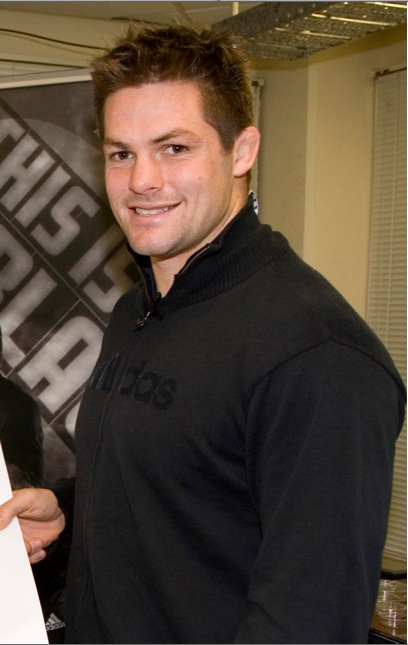How will Richie McCaw cope away for six months and how will he slip back in, UC expert asks


Six months away from work? And getting paid? The idea of a sabbatical must be very appealing to many but what might it actually mean for Richie McCaw and for the All Blacks, University of Canterbury sports psychologist Lucy Johnston said today.
McCaw has just released his book and will go on a six month sabbatical after the end of year tour to the UK.
Professor Johnston asked today, considering McCaw’s situation, how often when people are away from work do they worry about what is going on in the office?
``Will the person “filling in” for you actually do a better job? Will the team move on in your absence such that you don’t fit in or cope (work-wise or socially in your absence) when you come back? Or will the team struggle in your absence?
``How much will you be missed? Taking a short break from any job is normal and doesn’t raise these questions but taking a long break can be difficult both for the individual who is taking the break and for those who are left behind. It is similar for women taking parental leave.
`` It is important to everybody to be respected and valued and for many the workplace is an area in which this personal identity and esteem is realised. To walk away from that is a gamble, one must be confident that: you can maintain your positive self-esteem; that you are good enough to come back into the team and that if you don’t make the team at the end of the sabbatical period you can cope and have alternatives.
``For McCaw the opportunity for his body to have a break from constant battering and pain will be extremely restorative, but with a break comes challenges. Gone is the daily structure and routine of training and other responsibilities imposed by others (management, coaches) and gone is the daily attention from the public and the media,’’ she said.
What will he do? How will he fill is his time? What McCaw will certainly know at the end of six months is the extent to which he misses that team environment and wants to be part of it again.
McCaw has become an inspirational and respected leader of the All Blacks over recent years, leading by example and motivating others to follow that example, to show the same level of commitment as he does.
But the All Blacks will continue without him, no player, or captain, is irreplaceable. Often in sport there is concern particularly in the media about how a team will survive after the retirement or injury of a given player but inevitably they do, Professor Johnston said.
``The ABs survived the retirement of Colin Meads, Sean Fitzpatrick and of the previously considered irreplaceable No.7 Michael Jones. That is not to say that those retiring players are not missed, they are and adjustments need to be made to accommodate the style and strengths of the replacements.
``But NZ rugby is built on succession planning and from each “crisis” we get a star emerging – the first-five crisis in the World Cup was a hurdle for the ABs but they still won the tournament. So the All Blacks will carry on in McCaw’s absence, other players will emerge as leaders to fill those big shoes, and other No.7s will get the opportunity to display their talents.
``Will McCaw be able to come back into that team environment and regain his position? Rugby teams are used to players missing games and then coming back – either from injury or from international duty – so the concept is not a new one, although six months is a long break. It will be tough but McCaw has certainly not shied away from hard-work in the past and will have received no guarantees of a test place on return.
``But without a break how long could McCaw’s body sustain the workload of the Super 15 and the All Blacks? The sabbatical gives him a chance to extend his playing career. He might not come back as a No.7, but could make a switch to the slightly less demanding role of No.6. He may not come back as a starting player, but how useful will an enthusiastic and energized McCaw be to the ABs squad?’’
Questions have been raised about McCaw’s motivation for the end of year tour if he knows that he is having a break afterwards. Professor Johnston said she had no concerns after all he would be going on sabbatical with the intention that he would be coming back into the fold.
It will be important for McCaw to go out on a high, both at an individual level and also in terms of leaving the team in good shape.
The mark of a great team player is somebody who wants the team to succeed with or without them. The contribution of such a player is not only their individual playing contribution but their contribution to the team’s culture and support for other players including those who may replace them.
``The legacy of such players, and captains, continues long after they are no longer in the team. Spectators may miss seeing the contribution of the missing player “on the paddock” but they are still present in their contribution to the development of the players who are on the pitch and the team environment in which they are playing. McCaw is such a player,’’ she said.
